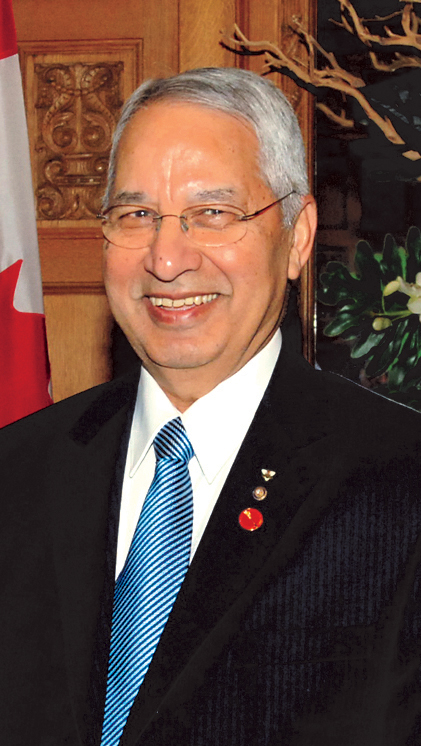By Kylie McKenzie
At present, there is a glaring lack of progress in filling Canadian Corporate board seats with qualified individuals living with physical disabilities, but if a group of forward-thinking business leaders have their way, that’s about to end.

Assembled by Vim Kochhar, Founder of the Canadian Foundation of Physically Disabled Persons (CFPDP), and led by Duncan Sinclair, the Chair of Deloitte, a social change initiative called “Everyone deserves a seat at the table” is designed to address the lack of representation by people with physical disabilities on Canadian corporate boards.
Equally qualified
“It’s time for corporations to start looking beyond the usual candidate pool when filling board seats and consider people who are equally qualified for the role and also have the experience of living with a disability,” says Kochhar.
A Seat at the Table enjoys strong support from some of Canada’s top business leaders, and has the ambitious goal of not only bringing public attention to this dearth of representation, but also persuading corporations to begin appointing people with disabilities to their boards.
To succeed in advocating for greater diversity around the boardroom table, the former Canadian senator knew that he needed, as a first step, to establish credibility with Canada’s business elite. So, drawing on his personal contacts, he persuaded a group of senior business leaders— including former General Motors Co. executive Maureen Kempston Darkes, Deloitte Canada chair Duncan Sinclair and The Globe and Mail publisher Phillip Crawley—to join a selection board charged with choosing qualified candidates based on their credentials, competencies and experience.
“Actually, it didn’t take much persuading,” said Kochhar. “Almost everyone I approached agreed very quickly to join our selection committee, and everyone on the committee has been incredibly generous with their time and helpful with their ideas on how to make this initiative a success.”
An early piece of advice was for the CFPDP to invest the time and effort upfront to recruit a deep pool of candidates for the selection committee to choose from. This led to a comprehensive outreach effort to professional associations and disability organizations in every province across the country.
Candidate selection
The past several months, the selection board has been vetting dozens of candidates, with the objective of creating a shortlist comprising the 10 top candidates from the pool. In the coming weeks, once the shortlist has been finalized, a public awareness campaign will be launched with full-page ads in the Globe and Mail and a robust social media plan. The campaign objective is to stimulate conversations across Canada—including in the executive suites of the country’s
top corporations—about why companies are not appointing qualified people with disabilities to their boards. In addition, letters will be sent to the board chairs and the leaders of board governance committees at Canada’s top 500 companies, encouraging them to begin appointing people with disabilities to board positions. Significantly, the letter will inform the recipients that the CFPDP is offering access to its candidate pipeline to assist them in finding candidates with the specific experience and competencies they require.
New board disclosure rules
Public companies in Canada are now mandated to publish information for shareholders on their gender diversity policies, and this disclosure requirement has led to an increase in the number of women on boards. Beginning this year under Bill C-25, the requirement will be expanded, making it necessary for federally incorporated companies to also report on their board representation of people with disabilities, as well as race and Indigenous heritage.
“The new disclosure rules are going to create a strong incentive for companies to invest in diversity on their boards and at the senior management level,” notes Kochhar.
“I believe this will make corporate boards extremely receptive to our advocacy in due time. It may take a while, since corporations move slowly by their nature, but I anticipate they will eventually come to see our candidate recruitment service as an invaluable tool in achieving their boardroom diversity objectives.”
Kylie McKenzie is a freelance journalist based in Toronto, with an interest in disability and inclusion.














